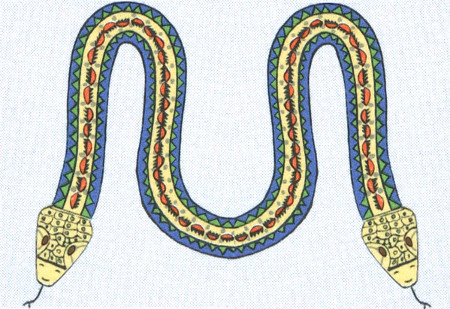
Edmund Wilson’s 1948 poem “The Pickerel Pond” has a novel feature — backward rhymes:
The lake lies with never a ripple
A lymph to lave sores from a leper
The sand white as salt in an air
That has filtered and tamed every ray;
Below limpid water, those lissome
Scrolleries scribbled by mussels
The floating dropped feathers of gulls;
A leech like a lengthening slug
That shrinks at a touch, ink and orange;
A child’s wrecked Rio Janeiro,
One fortress of which flies a reed
The cleft and quick prints of a deer …
Each pair of line endings (ripple/leper, air/ray) reverse one another in pronunciation, reflecting the pond’s mirror-like surface. They’re called amphisbaenic rhymes, after the amphisbaena, a Greek monster whose two heads allow it to move in either direction. Wilson’s poem contains 70 twisting stanzas of such rhymes.
